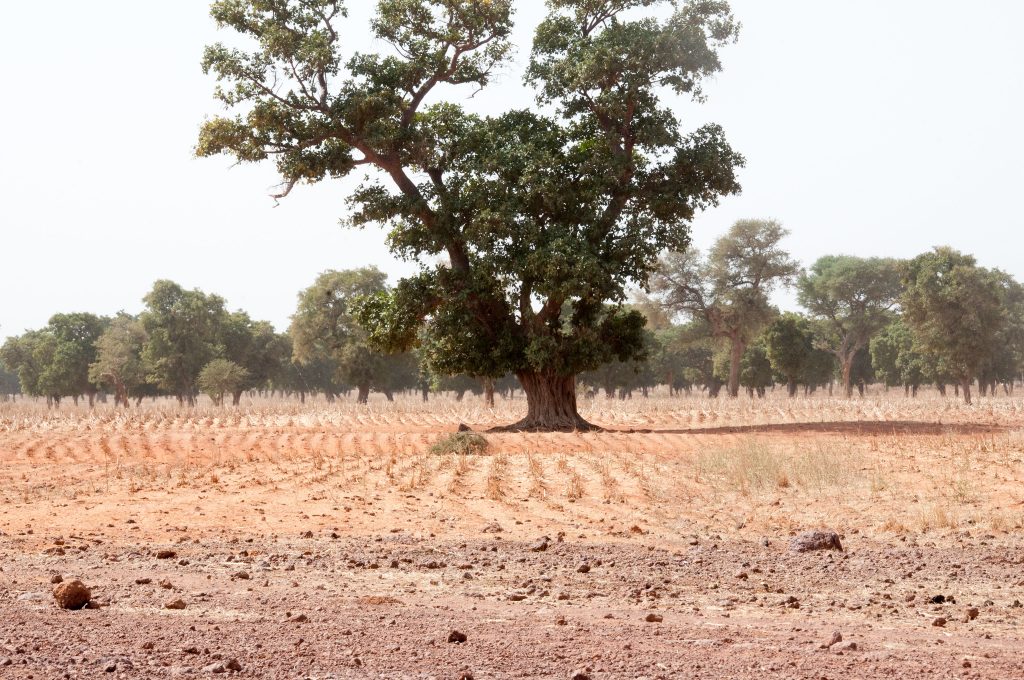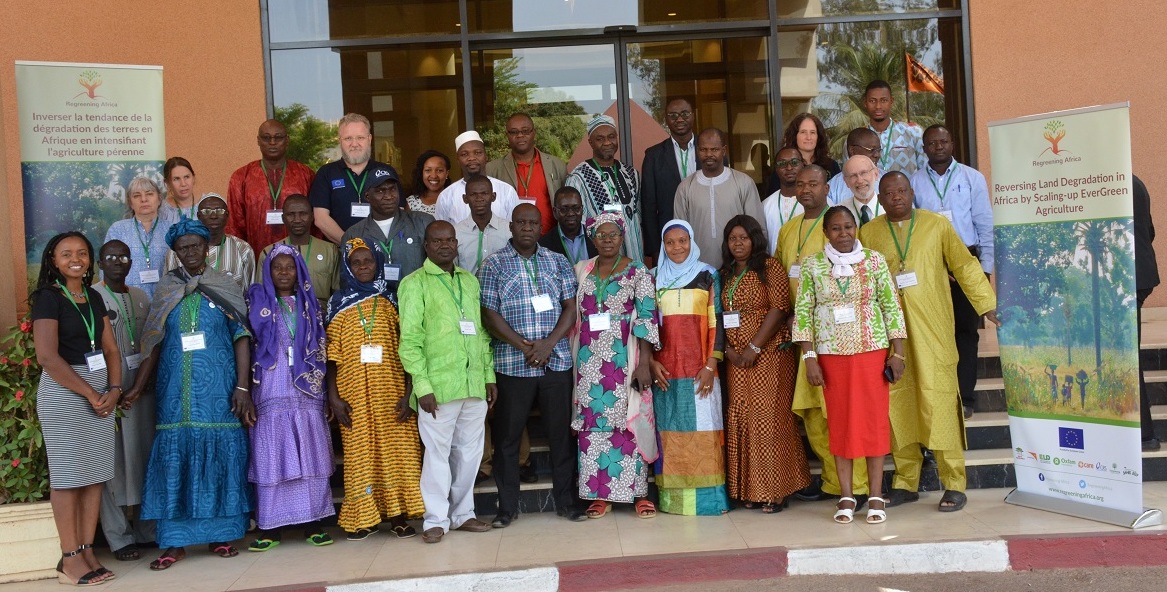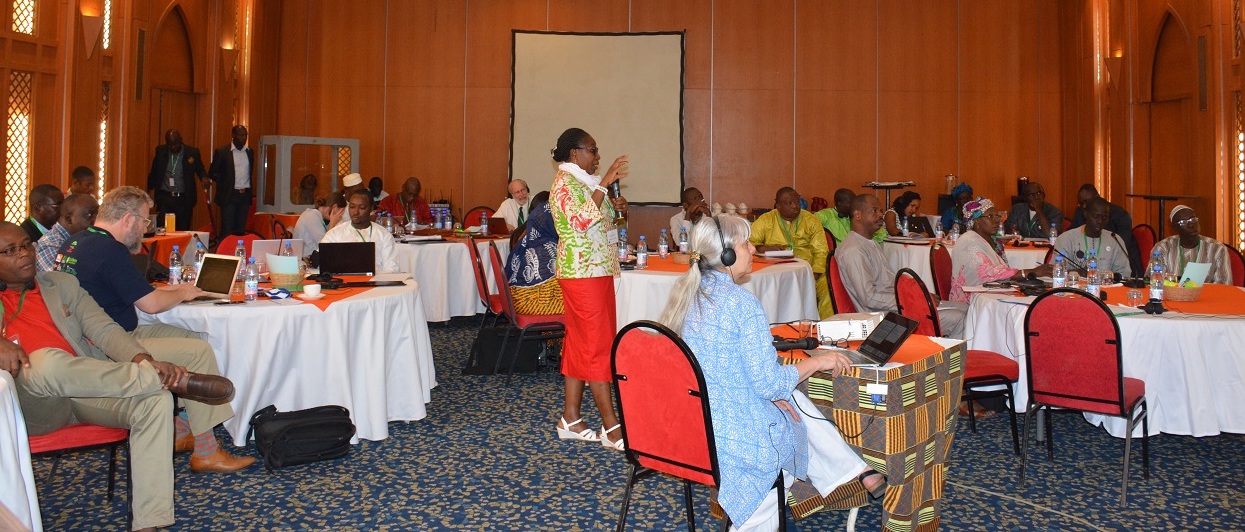
Faidherbia albida parklands in Mali. Photo: Ake Mamo
By Gilberte Koffi
Government, researchers and development agencies are creating a roadmap for restoration in Mali to ensure a better understanding of the challenges, coordination and funding.
Mali is one of eight African countries where Regreening Africa is being implemented, targeting 500,000 households to restore a total of 1,000,000 hectares of degraded land. Mali aims to engage 80,000 smallholders to regreen 160,000 hectares in four districts: Bla, Koutiala, San and Yorosso.
Recognising the need for stronger coordination, a Stakeholder Approach to Risk-informed and Evidence-based Decision-making (SHARED) workshop was organized by Regreening Africa in Bamako, Mali following on from a Beating Famine conference.
The national workshop brought together government representatives, including the agriculture directorate and local authorities, as well as local and international NGOs, farmers, pastoralists and research institutions.
The objective was to develop a roadmap of actions to support regreening based on evidence and commitments by the Mali working group made during the conference.
‘We’ve been assigned objectives drawn from the Beating Famine conference that just ended yesterday,’ said Sékou Sala Sissoko, representative of the Minister of Agriculture. ‘We have to, first, review the evidence and benefits associated with the integration of trees into agricultural and pastoral landscapes; second, identify opportunities that can be implemented by adopting agroforestry practices and establishing supportive policy processes; and, third, collectively develop a roadmap for scaling up.’
The SHARED approach is a participatory method for engaging people to interact with both experience and evidence aiming to accelerate the impact. It starts by understanding the context then integrating the information, experience and evidence and prioritizing and planning. SHARED supports Regreening Africa through enhancing coordination, strategies to increase the scale of land restoration and bringing evidence into decision-making processes.
‘What needs to be done is to implement different agreements between all actors, such as with civil society and the private sector,’ said Djalal Arinloye, World Agroforestry Sahel representative. ‘Presently, what we see is that everyone works in their own silo. We believe no organization can work alone, we have to work together to achieve the objectives.’
Patrick Worms of World Agroforestry noted that, ‘Foundations exist, it remains to build a beautiful house. In other words, there are some coordination efforts that need to be translated into concrete actions.’
All agreed that more action was needed.
‘The situation is very serious and we must react,’ said Catherine Dembele, tree domestication scientist with World Agroforestry Sahel. ‘The action of everyone is necessary and useful. The most important thing is that we all realize that the time for half-measures has passed.’
What was needed was to clearly identify the barriers and the opportunities that are untapped, obvious and easy to implement.
‘This will help us develop a roadmap and allow us to transform this knowledge into actions and begin to scale it up,’ said Worms.
Catherine Dembele highlighted the three components of Regreening Africa and called on everyone to innovate in their work. Adama Coulibaly, the newly appointed coordinator for OXFAM’s engagement with Regreening Africaexplained that his organization had already conducted a series of workshops, introduced the project to communities and local authorities, conducted training, identified leading farmers, carried out baseline studies and an agroforestry product value chains study and facilitated the establishment of the National Oversight Consultation Committee.
Silke Schwedes,from Deutsche Gesellschaft für Internationale Zusammenarbeit, and [Diarra Aichatou],ambassador for the Economics of Land Degradation (ELD), which is a global initiative for sustainable land management, discussed strengthening the capacity of national actors to assess the costs of land degradation and the benefits of investments in sustainable land management. They highlighted the activities carried out in Mali to date: training of trainers to integrate the ELD approach into university curricula and assessing the risks and benefits in areas heavily affected by land degradation; and formulating memoranda of understanding or contracts with local institutions.
Dennis Garrity, Drylands Ambassador for the United Nations Convention to Combat Desertification, talked about expanding the scale of agro-ecological systems based on what has already been achieved.
‘These successes are a foundation and great opportunities to reach millions more farmers,’ he said.
He had noticed that in the shea region, although all the shea trees are from farmer-managed natural regeneration, farmers are not growing young trees to replace mature ones.
‘As part of the regreening project, we need to consider to reestablish a new generation of trees. Otherwise these trees will eventually die out and we will loose the shea systems,’ he said.
At the end of the workshop, the participants committed their respective organizations to work to achieve Mali’s regreening objectives.
The third in a series of Beating Famine conferences was hosted in Bamako, Mali, 26–28 February 2019.
Regreening Africa is an ambitious five-year project that seeks to reverse land degradation among 500,000 households, and across 1 million hectares in eight countries in Sub-Saharan Africa. By incorporating trees into croplands, communal lands and pastoral areas, regreening efforts make it possible to reclaim Africa’s degraded landscapes.
This story was produced with the financial support of the European Union. Its contents are the sole responsibility of Regreening Africa and do not necessarily reflect the views of the European Union.




